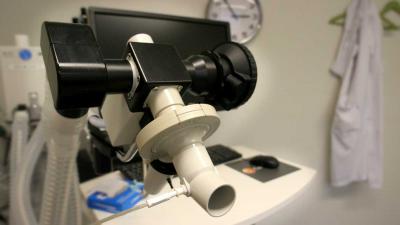‘Regular contact with patients is important’
‘Now that the second wave of the corona crisis has arrived, the Maastricht researchers want to emphasize the importance of regular contact with chronic patients and careful follow-up,’ says Maastricht UMC +.
Learn lessons from the past
Regular care was largely scaled down in the first wave of the corona crisis due to increasing numbers of corona patients. Care for chronic patients with lung or heart disease therefore had to be provided in alternative ways, for example by making more use of video calling or the use of eHealth applications. Home care and physiotherapy were also scaled down and social contacts were reduced. In short, life suddenly looked different. Now that we are in the second wave, there are lessons to be learned from the past.
Concerns about health
A special questionnaire has been drawn up to map out the impact of the corona crisis on patients with COPD, pulmonary fibrosis or heart failure. Patients from all over the country were asked about their experiences with professional care in the past two months and about the psychosocial consequences of the imposed measures. To date, 680 patients have participated and shared their experiences with the researchers. Almost half of them received a postponement or change of care, and the physical therapist was contacted less in no less than 60 percent. This means that 39 percent of the respondents think that their own health has deteriorated. The majority are therefore concerned about their own health (58 percent) and also about their own condition (47 percent).
Make fear a topic of discussion
A large proportion of chronic patients also experience fears. Fear of becoming infected with the coronavirus yourself (82 percent), of ending up in the Intensive Care Unit (78 percent) or of being alone when sick (65 percent). Prof. Marieke van den Beuken, professor of palliative medicine, believes that the results of the study underline the importance of vigilance.
Specific concerns and fears
‘It is important that healthcare providers guarantee the regular care for these patients as well as possible during the second wave of the coronavirus. Sufficient attention will also have to be paid to the specific concerns and fears that exist in these patient groups. Make these reflections a subject for discussion with patients, so that you as a healthcare provider can anticipate and act on time, ‘says Van den Beuken.
– .


:quality(80)/cdn-kiosk-api.telegraaf.nl/48cf43f0-2290-11eb-a79d-02d2fb1aa1d7.jpg)